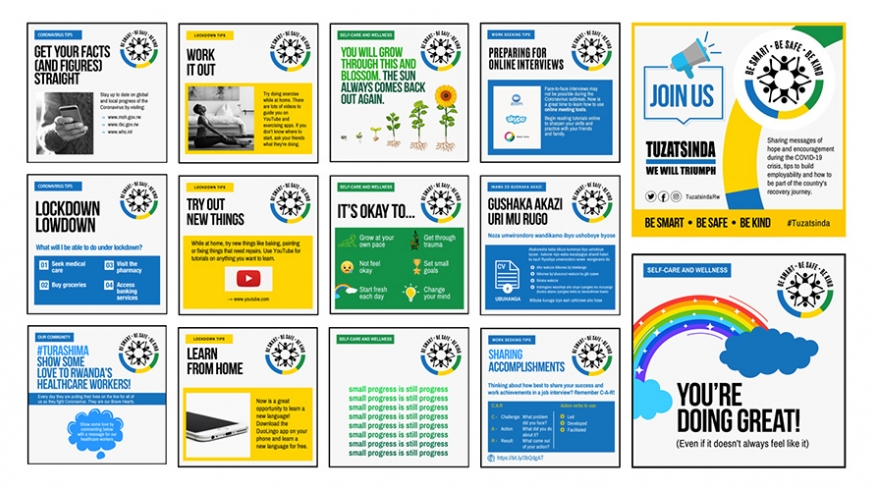

SA Youth connects young people to work and employers to a pool of entry level talent.
Are you a work-seeker?
Fabrice Muhirwa joined the Harambee Youth Employment Accelerator network to look for a job right before the Covid-19 lockdown began. Things were difficult for him even before the pandemic; he had been unemployed for nearly two years.
However, with the help of work-seeking tips shared by Harambee over WhatsApp, Fabrice overcame his shyness, increased his command of English, worked on his networking skills and found a part-time job in the marketing department of a company that makes protective masks.
Fabrice takes pride in playing his part during the pandemic and encourages his peers to “never give up, stay connected and be ready for any opportunity. “The Covid-19 pandemic has hit young people like Fabrice especially hard. With fewer job opportunities, they are anxious about the crisis and the potential for limited prospects after it ends. However, by listening to young people’s concerns and lifting up their voices, we can support them to solve the challenges they face.
In April, Harambee, in partnership with the Ministry of Youth and Culture, Rwanda Development Board and Kigali Employment Service Centre, launched the youth-focused Tuzatsinda campaign. Tuzatsinda (we will triumph) is giving young people tips to sail through this difficult time.
Since then, 25 partners have joined the campaign — universities, skills providers and community based organisations — each amplifying the content to their own networks. In just six weeks, the campaign has reached half a million people around the country. When we surveyed 400 young people across Rwanda as part of the campaign, they told us that by listening to them and providing them with facts, tips and opportunities, they are better able to manage the uncertainty of the pandemic.

Some of the tips and advice being shared with young Rwandans through the Tuzatsinda Campaign.
So, what else did young people tell us? They shared that they are anxious about the lockdown, but still feel supported. They value tips on safety and wellness, how to support friends and family, and the skills they can learn to help adapt to the new context. They used the time at home to learn new skills such as CV-writing, phone interview skills, and work-seeking.
They also told us they are worried about the economy, but feel hopeful because of the country’s sense of community and determination to succeed together. Young people are staying smart, safe and being kind by reading news from trusted sites, and by spending time with their families. They are gaining experience by fixing things at home and volunteering when they can and it is safe to do so.
We also learnt that young people, particularly women, could benefit from the shift to online programming. A young job-seeker, Ernestine Turabayo, had originally enrolled in Harambee’s in-person English Acceleration Programme. When the programme went online due to the Covid-19 lockdown, she told us that doing the programme remotely enabled her to build skills while also taking care of her household obligations — a level of flexibility she did not have before.
While access to smartphones and data are still significant barriers to digital inclusion for all Rwandan youth, organisations working with young people should seize this unique opportunity to build on the advantages of virtual learning to promote gender inclusion and access. Radio is also an important channel to connect with a broad base of young people, especially those without smartphones.
Well-being and employability tips broadcast on popular radio shows throughout the campaign have allowed young people to relate to content shared by people like them, showing them it is possible to get through the pandemic with the right attitude and new skills.
Young work-seeker Theo Ruzindana told us that “It’s good to be heard — we are ready for work.” Let’s support young people like Fabrice, Ernestine and Theo by really listening to them, lifting up their voices, and partnering to create solutions. In doing so, we can empower them to lead us out of this crisis and into an even brighter future.
This article was written by Erica Mbanda and Sharmi Surianarain who work with Harambee Youth Employment Accelerator in Rwanda – which is part of Mastercard Foundation’s Hanga Ahazaza Initiative. The article was originally published on 11 June 2020 on The New Times website. Access the original article here: https://www.newtimes.co.rw/opinions/young-people-tuzatsinda.